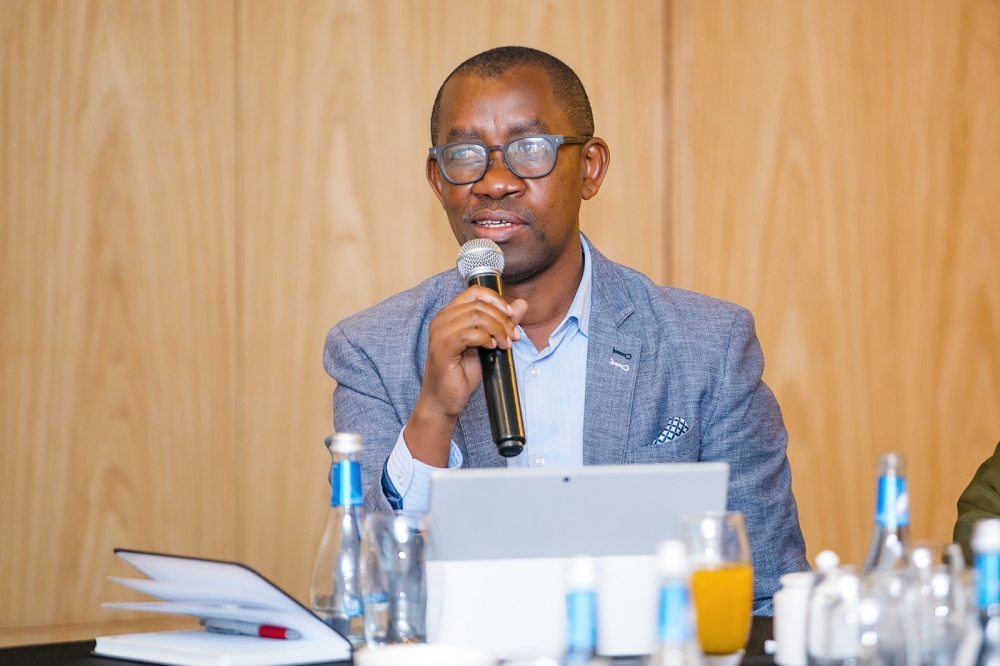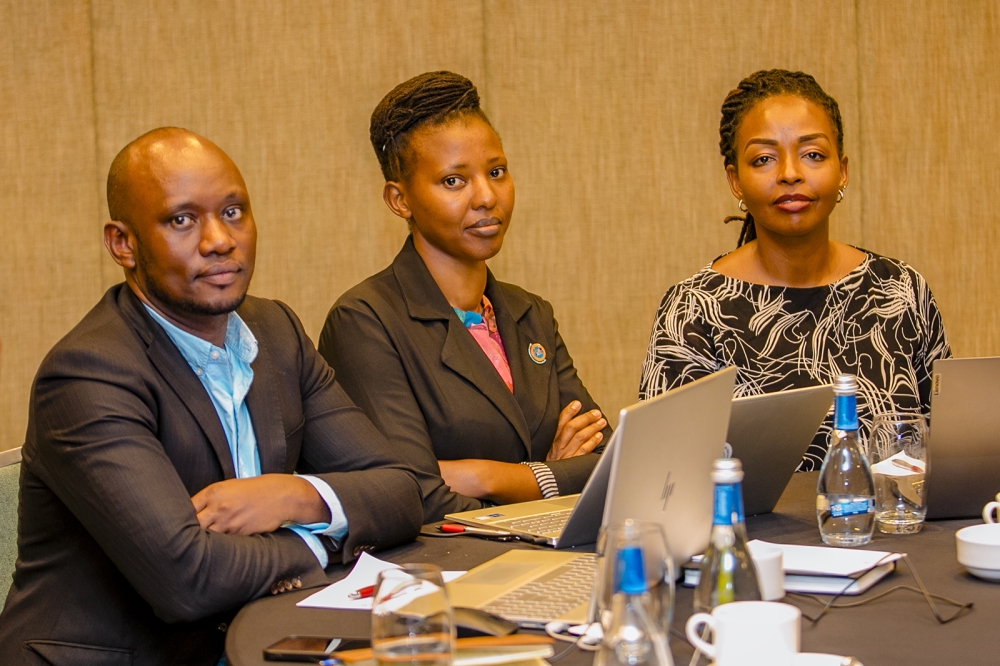

Rwanda Revenue Authority (RRA) has reiterated its commitment to creating a conducive environment for men and women by implementing Gender Equality Seal standards.
On May 20, RRA senior management hosted a workshop with the United Nations Development Programme (UNDP) centred on Gender Equality in Tax Administration.
Osten Chulu, Senior Economic Advisor at UNDP, said gender inequalities must be addressed in all aspects, including economic, social, political, environmental, and governance aspects. The UNDP has been working towards a world with a tax system and fiscal policies that contribute to building a gender-equal economy, through the Equanomics initiative.
Fiscal policies can play a prominent role in advancing gender equality which is also a necessary condition to achieve the Sustainable Development Goals. This calls for gender-responsive tax and expenditure policies designed to transform existing economic structures and systems that perpetuate inequality.
Such a transformation is only possible if the key public institutions responsible for fiscal governance, notably a country’s ministry of finance and tax administration, fully embrace gender equality as a fundamental principle and objective across all institutional functions.
"When we talk on Equanomics, we talk of economic equality, where there is equal distribution of all national wealth and all the assets of the country. It is well recognised that fiscal policies can play a prominent role in advancing gender equality which is also a necessary condition to achieve the Sustainable Development Goals (SDGs).
"This calls for gender-responsive tax policies and reforms designed to transform existing economic structures and systems and promote equality between male and female taxpayers,” he said.
To enhance gender equality in the Rwandan taxation system, key aspects have been highlighted. These include equal treatment in taxation, treating individuals equally regardless of gender, and avoiding any gender-based biases or discriminatory practices in tax codes.


The need for progressive taxation has also been emphasised, where higher income earners can be taxed at a higher rate to help redistribute wealth and reduce inequality in incomes, which disproportionately affects women, particularly those in lower income brackets. Other aspects include tax credits and deductions, access to financial resources, addressing the gender pay gap, and investing in social programmes.
Chulu concluded that UNDP is working with its partners to extend the implementation of the Gender Equality Seal for Public Institutions including tax administrations.
Rwanda is only one of the three pilot countries in Africa and eight countries globally that have been selected to implement the Equanomics programme in Africa. The ambition is to have 100 countries implement this programme by 2027. The other countries are Nigeria, Ghana, Kyrgyzstan, Philippines, Bangladesh, Mongolia, and Costa Rica.
RRA Commissioner General, Pascal Bizimana Ruganintwali, said RRA is a law-abiding institution, which makes it easy to give equal opportunities to men and women. He emphasised that women should get more incentives to be economic actors and contribute to economic development.
"I really appreciate UNDP supporting the implementation of the Gender Equality Seal Programme in RRA, and from our side, we are committed to implementing all the standards,” he added. RRA targets to be certified after evaluation of how gender standards are being implemented.
Florien H. Rurihose, Deputy Chief Gender Monitor of the Gender Monitoring Office, expressed his appreciation that gender issues are now being discussed in key sectors of the economy including the financial development sector and the tax administration.
He also said that since the inception of the Gender Equality Seal programme with UNDP in 2018, the main focus has been on the private sector, but it later expanded to public institutions, and a few public institutions have been certified.
"For institutions that implement the Gender Equality Seal programme, they are provided with useful tools that help them to enhance accountability to gender equality whilst also improving their working environment and promoting inclusive workplaces. This ultimately leads to sustainable development and is good for the country,” he added.
Rwanda has recently established national gender standards through the Rwanda Standards Board and will host the ISO General Assembly in 2025 to adopt them.
Participants emphasised that taxes shouldn’t be seen as a punishment for earners, but rather, as a channel provided for them to contribute to national development. They stressed the need to analyse the progressivity of taxes.
"In that case, we should really ensure that the aspect of gender equity is taken care of in our taxation system, making sure that the participation of women in the economy is growing, getting better, and is of higher quality. Our tax policies, should, therefore, be geared to create incentives that can attract women in business to become key actors,” said one participant.
To further advance taxation and gender equality, UNDP and RRA have signed a Memorandum of Understanding (MoU), aimed at facilitating cooperation towards fostering a tax system and fiscal policies that actively contribute to creating an environment free from gender-based discrimination.


